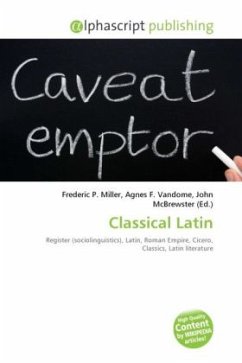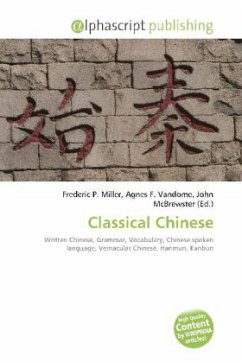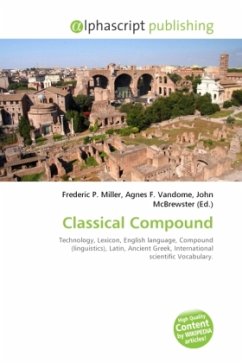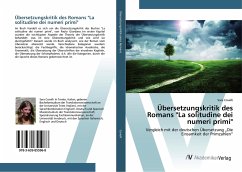High Quality Content by WIKIPEDIA articles! Classical Latin in simplest terms is the sociolinguistic register of the Latin language regarded by the enfranchised and empowered populations of the late Roman republic and the Roman empire as good Latin. Most writers during this time made use of it. Any unabridged Latin dictionary informs moderns that Marcus Tullius Cicero and his contemporaries of the late republic while using lingua Latina and sermo Latinus to mean the Latin language as opposed to the Greek or other languages, and sermo vulgaris or sermo vulgi to refer to the vernacular of the uneducated masses, regarded the speech they valued most and in which they wrote as Latinitas, "Latinity", with the implication of good. Sometimes it is called sermo familiaris, "speech of the good families", sermo urbanus, "speech of the city" or rarely sermo nobilis, "noble speech", but mainly besides Latinitas it was latine (adverb), "in good Latin", or latinius (comparative degree of adjective), "good Latin." Latinitas was spoken as well as written. Moreover, it was the language taught by the schools.
Bitte wählen Sie Ihr Anliegen aus.
Rechnungen
Retourenschein anfordern
Bestellstatus
Storno








